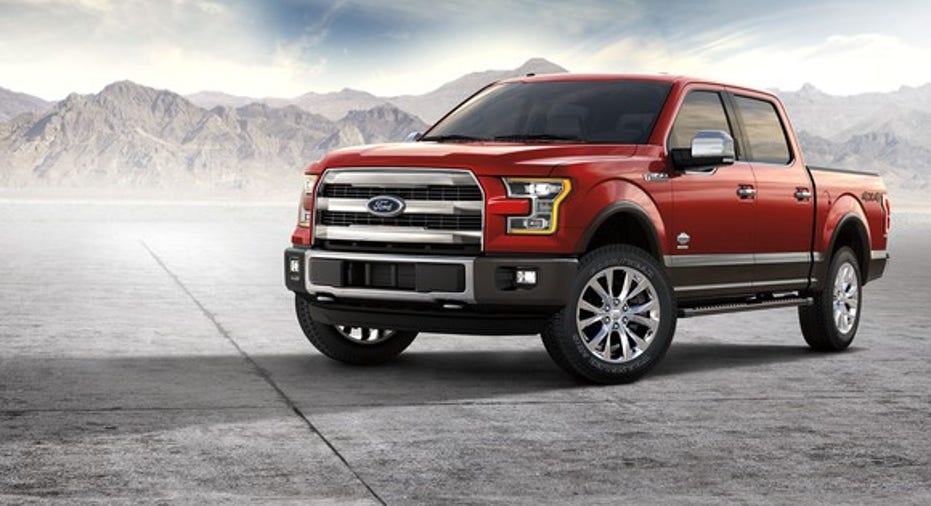How Ford Will Convince Customers to Pay More for Electric Vehicles

How can Ford use plug-in hybrid technology to make its F-150 pickup even more appealing to its customers? That's the kind of question the Blue Oval has been pondering. Image source: Ford Motor Company.
Like most big automakers, Ford Motor Company (NYSE: F) recognizes that the world is moving away from gasoline engines and toward "electrified" vehicle drivetrains, plug-in hybrids and fully electric vehicles, and it wants to be in front of that trend.
But there's an obstacle: Electrified vehicles cost more to build than their internal-combustion counterparts. That will probably change in time, as battery technology advances and Ford builds experience and scale. But Ford has to get there.
While Ford's executives seem committed to the benefits of zero-emission vehicles, the company doesn't really have a choice. Even if Ford didn't want to build electric and hybrid cars, tightening fuel-economy and pollution regulations will force its hand in a few years. Ford doesn't want to wait for that.
That's why CEO Mark Fields and his team have been pondering this question: How can Ford convince consumers to pay a little more for advanced hybrids and full-on electric vehicles in an era of $2-a-gallon gas?
On Wednesday, during Ford's annual Investor Day presentation, the team showed us their answer.
Ford's strategy isn't about little electric cars
"We want to become a top player in electrified solutions, and I call it moving from a compliance mind-set to one of leading where we can win, such as with our commercial vehicles," Fields said during a presentation to investors on Wednesday.
What's that mean? It means that Ford will focus its electrification efforts on highly profitable market segments where Ford has a strong position. That will help it build expertise and manufacturing scale that in time will make it cost-effective to bring electrified drivetrains to the rest of its lineup, along with an infrastructure to support those vehicles, all while building market awareness with some of Ford's most popular and visible products.
Image source: Ford Motor Company.
Here's what Ford's product chief, Raj Nair, said on Wednesday:
Trucks, commercial vehicles, sport-utilities, and performance vehicles are all parts of the market where Ford has a strong position, and where it currently generates big profit margins. Those are the segments where Ford will focus its electrification efforts, on the theory that those customers are most likely to buy into Ford's innovations -- and are most willing to pay for them.
In other words, rather than building an electric vehicle just to satisfy regulatory requirements (what Fields meant by "compliance mind-set"), Ford is planning to bring electric drivetrains to market in ways that will make customers feel they add significant value.
What might these products look like?
How might Ford incorporate electric drivetrains into its most gas-guzzling products in ways that will make its customers willing to pay extra?
Think about a plug-in hybrid Ford pickup that can summon its electric motors' immense torque to start a heavy load moving, or an SUV with an electric motor at each wheel that can adjust its traction on the fly in slippery conditions, or a plug-in hybrid Mustang that runs on electric batteries in normal driving -- but that instantly starts its powerful gasoline V8 when you floor it. Or a fleet of electric commercial delivery vans that operate quietly and don't ever need fuel, just a nightly recharge.
Clearly, there's a lot of potential for Ford to use electric and hybrid drivetrains in ways that add value to its most profitable products. In time, all Fords will be electric. Getting there will be a challenging and expensive journey. But it sounds like Ford has hit on a formula to give its customers some extra value, and its bottom line a little less pressure, along the way.
A secret billion-dollar stock opportunity The world's biggest tech company forgot to show you something, but a few Wall Street analysts and the Fool didn't miss a beat: There's a small company that's powering their brand-new gadgets and the coming revolution in technology. And we think its stock price has nearly unlimited room to run for early in-the-know investors! To be one of them, just click here.
John Rosevear owns shares of Ford. The Motley Fool owns shares of and recommends Ford. Try any of our Foolish newsletter services free for 30 days. We Fools may not all hold the same opinions, but we all believe that considering a diverse range of insights makes us better investors. The Motley Fool has a disclosure policy.



















